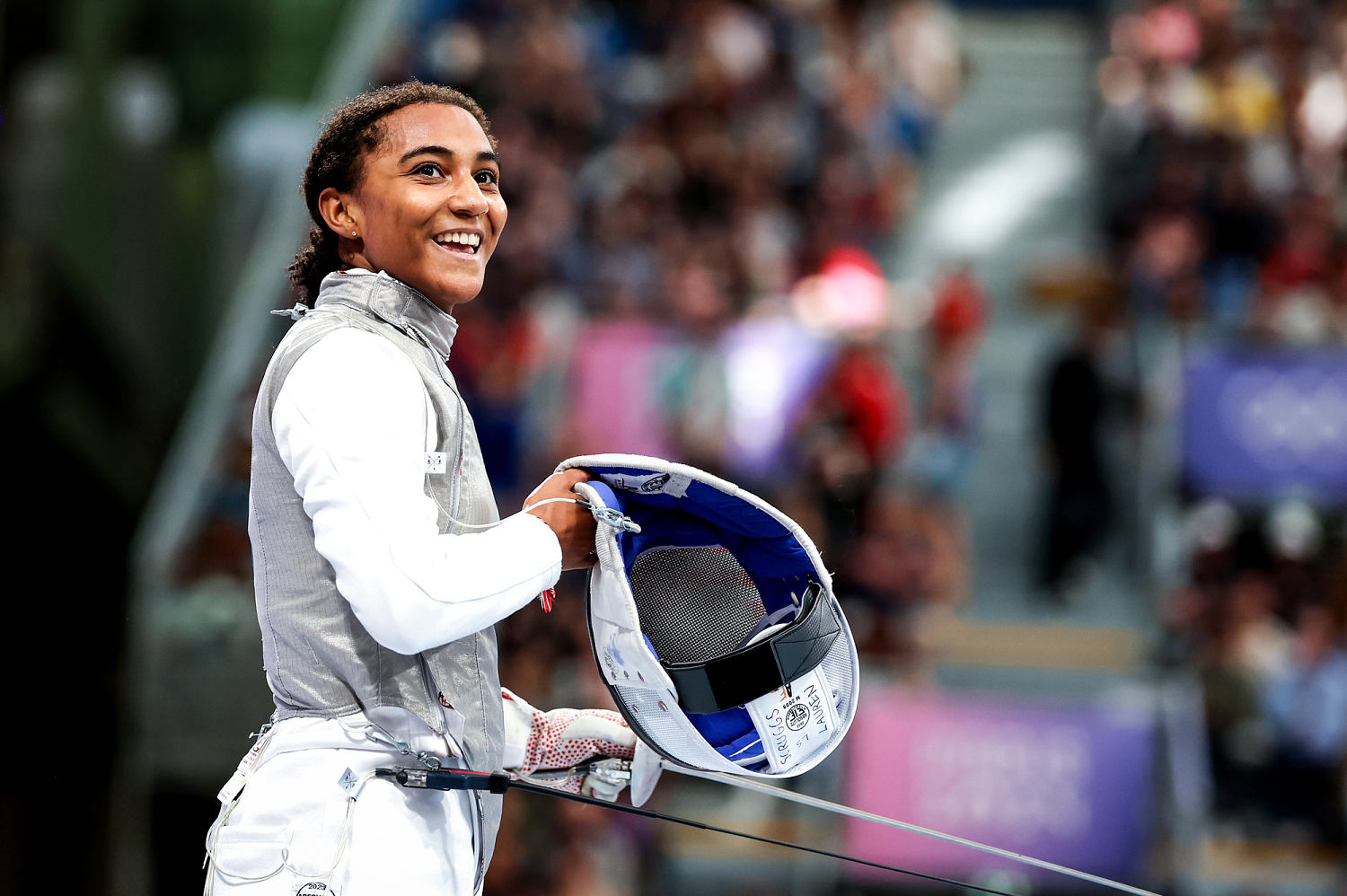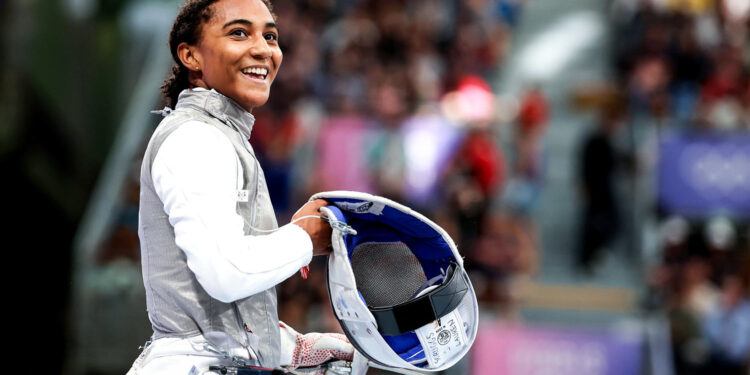
American Lauren Scruggs made history at the Paris Olympics on Sunday when she took the silver medal in women’s foil fencing.
Scruggs, from Queens, New York, became the first Black American woman and the first Black out lesbian to win an individual fencing medal.
She described the experience as “surreal” and said she hopes her medal shows other people that fencing, which has historically lacked diversity, “is for you.”
“You get more diverse people getting into fencing when they see people like them,” Scruggs, 21, told NBC News in a video interview. “I hope to be an example of who can fence. Hopefully people like me who identify similar to me feel that this sport is the place for them.”
Her teammate, Lee Kiefer, 30, won the final 15-6 Sunday to defend her gold medal in the event.
When she was young, Scruggs trained under Peter Westbrook — the first Black man from the United States to win an Olympic medal in fencing — through his foundation, which supports underrepresented youth through fencing.
She said her favorite part of her Olympic debut, aside from winning a medal, has been being in the Olympic Village and “casually walking past” medalists such as swimmer Katie Ledecky and gymnast Simone Biles and talking to tennis star Coco Gauff.
“It’s just crazy to always be surrounded by such amazing athletes and that just to be the norm,” Scruggs said. “And I guess I am one of those amazing athletes,” she said, laughing. “But it’s just kind of crazy to just be in that environment.”
Scruggs started fencing at age 6 after her older brother, Nolen, started taking lessons. She said she loves the nature of the competition.
“It’s very mentally stimulating,” she said. “It’s a combat sport, so I think it’s unique in the sense that you get to fight someone, but it’s also you’re not really fighting them, like with boxing. So it’s a very interesting sport to me.”
She said she did receive pushback growing up in the sport, but most of it was related to her race and not her sexual orientation.
“I just felt like no one was really on my side at tournaments, even from a young age,” she said. “So that kind of pushed me to kind of fight more at the tournaments and prove that I really belonged and that nothing was going to put me down.”
She said that being gay further isolated her but that she had a supportive group of close friends.
Scruggs is a rising senior at Harvard University studying philosophy and plans to work in finance. She met her girlfriend, Chelsea, whose photos she often shares on social media, through a friend during freshman year.
She said that she usually goes to New York City’s LGBTQ Pride march every June and loves to “soak up the energy” in Washington Square Park, but that this year she didn’t go because she was at a fencing tournament.
“But we won the tournament,” she quipped. “So I guess that counts as a celebration.”
In addition to her historic firsts, Scruggs is also the second LGBTQ person to medal in a women’s fencing event following French fencer Astrid Guyart, who won a silver medal in the team women’s foil at the Tokyo Olympics, according to Cyd Zeigler, the co-founder of LGBTQ sports website Outsports.
Zeigler noted that Scruggs became the second LGBTQ athlete to medal at the Paris Games, following Amandine Buchard from France, who won a silver in women’s judo.
“That two Black gay women won the first Paris Olympics medals for Team LGBTQ is a powerful sign of our times,” Zeigler said. “For Lauren to do that in a sport like fencing, where Black athletes have not been particularly visible over the years, makes the incredible accomplishment of her and judoka Amandine particularly special.”
At least 193 out LGBTQ athletes are competing in the 2024 Summer Games, according to Outsports, surpassing the previous record set by the Tokyo Olympics, where at least 186 out athletes competed.
For more from NBC Out, sign up for our weekly newsletter.






